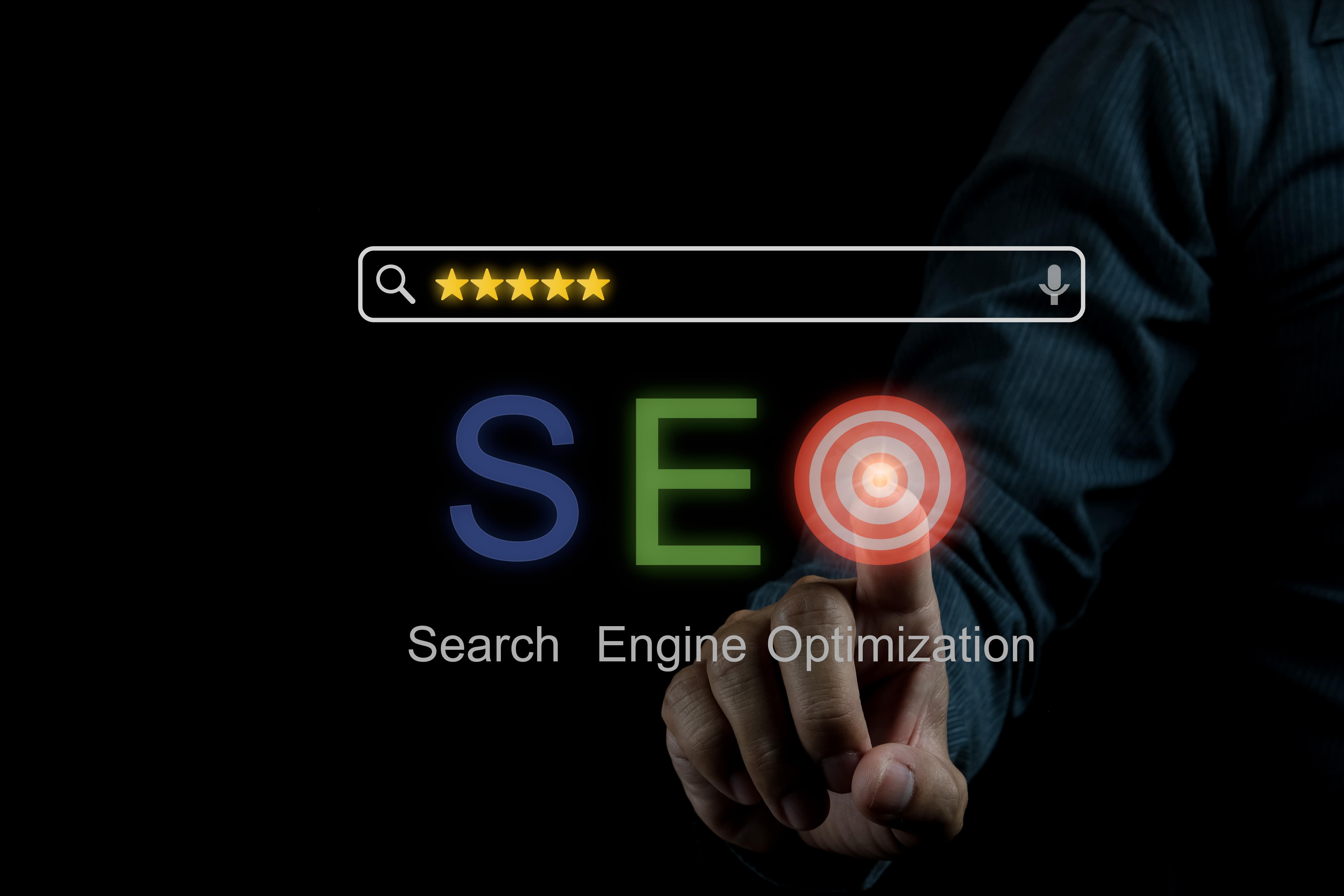If you've ever wondered how certain websites appear at the top of a search engine's results page, you're about to dive into the fascinating world of Search Engine Optimisation (SEO). As the bridge that connects potential customers to businesses, SEO has become an essential component of modern marketing strategy. But what exactly is SEO, and how does it work? In this comprehensive guide, we will explore four critical factors you must consider before embarking on your SEO journey. Understanding these essential elements can help you make informed decisions and elevate your website's presence in search engine rankings.

What is SEO and Why is it Important?
Search Engine Optimisation (SEO) is the process of improving a website's visibility in search engine results. When you search for something online, on Google or another search engine, the results that appear organically (not paid advertisements) are there because of SEO. The search engine's algorithm decides which results to show, and in what order. SEO is a method of influencing these results to get your webpage higher in the rankings. So you can think of SEO as the backstage director of a website's performance in search engine results.
SEO is a vital tool today, and here’s why:
- Increased Visibility: Your website's ranking matters. If your website appears higher in search results, the more people will find and visit it. SEO helps you climb those rankings.
- Quality Traffic: SEO enables you to reach the people who are genuinely interested in what you offer. It's about connecting with the right audience, not just any audience.
- Cost-Effective: Unlike paid advertising, organic traffic generated through SEO is free. It's an investment in your online presence that pays off over time.
- Credibility and Trust: When your site appears high in search results, people are more likely to trust it. SEO builds that trust by ensuring that your site fulfills users' needs and expectations.
In an online world where millions of websites compete for attention, SEO helps yours stand out. It's not about tricking search engines but aligning your website with what your audience is genuinely seeking.

How Does SEO Work?
Think of SEO as a puzzle, where each piece represents a different element that search engines consider when ranking your website. These pieces must fit together perfectly to create an appealing picture that search engines want to display prominently. Let's explore these puzzle pieces:
- Keywords: Specific words and phrases people use to search for something online. By identifying and using the right keywords in your content, you can align your website with what people are actively looking for.
- Quality Content: Must be informative, engaging, and well-written. Search engines reward content that fulfills user needs, answers their questions, and keeps them engaged. It's not just about what you say but how you say it.
- Site Structure: Well-structured website is like a well-organised library, making it easy for users (and search engines) to find what they need.
- Backlinks: Links from other reputable sites that signal your website's credibility. The more quality backlinks you have, the more credible your site appears to search engines.
- Technical Aspects: Include site speed, mobile-friendliness, security, and more. Search engines prefer sites that offer a smooth user experience. The more user-friendly your site, the better it will rank.
- Social Signals: Your presence on social media platforms can also influence your SEO. Engagement and shares can indicate to search engines that your content is valuable to users.
- Local SEO: If you run a local business, optimising for local searches is vital. This includes ensuring that your location, contact information, and services are easily accessible and consistent across all platforms.
- Ongoing Optimisation: SEO isn't a one-time job; it's an ongoing process. Regularly updating your content, monitoring your performance, and adjusting your strategy keeps you aligned with ever-changing search engine algorithms and user preferences.
By optimising these factors, SEO aims to improve a website's ranking in search results, making it more accessible to users.

The 4 Key Elements to Consider Before Creating an SEO Strategy
Crafting an effective SEO strategy isn’t about throwing together a bunch of keywords and hoping for the best. It requires thoughtful planning and consideration of various factors that align with your unique goals and audience. Here are four critical elements you should consider:
- What Is Your Goal with SEO?
- Increase Traffic: Attract more visitors to your site. More visitors can mean more opportunities for sales or engagement.
- Boost Sales: Convert visitors into paying customers. Presenting the right content and calls to action can lead visitors down a path to purchase
- Build Brand Awareness: Make more people aware of your business or brand. Your online presence reflects your brand.
- Enhance User Engagement and Conversion Tracking: Encourage visitors to spend more time on your site through engaging content, fostering a deeper connection. Utilise Google's event-based tracking to understand specific actions that lead to conversions, such as sign-ups or downloads.
- Who Is Your Audience?
- Understanding Demographics: Who are the people you want to reach? Knowing their age, gender, location, etc., helps you create targeted content.
- Identifying Interests and Pain Points: What are your audience's hobbies, needs, and pain points? What problems can you solve? Understanding these aspects can guide your content creation.
- Analysing Search Behaviour: What questions are they asking online? What keywords are they using? Analysing their queries helps you align your content with their needs.
- What Type of Content Will You Use?
- Blogs: Offer informative, in-depth insights or guides. Blogs remain popular, with 60% of marketers using them in their content strategy.
- Videos: Visual content can explain complex topics easily or or demonstrate products. Videos are trending, as 85% of businesses now use video as a marketing tool.
- Infographics: These are great for breaking down complex information into visual chunks. Infographics can increase web traffic by up to 12%.
- Podcasts: Share discussions or interviews in audio format. Podcasts are a growing medium, with over 5 million active podcasts and over 70 million episodes available globally.
- E-books, Webinars, and More: Depending on your audience, various content types can engage and inform. Diversifying your content can increase engagement rates by up to 40%.
- What Medium Will You Use?
- Organic Search: The foundation of SEO, focusing on optimising your site for search engines. Useful tools: Google Analytics, Google Search Console, SEMrush, Moz, or Yoast SEO for WordPress sites.
- Paid Advertising: Supplement your SEO with paid targeted ads for specific audiences and quick visibility boosts. Use tools like Google Ads, Facebook Ads Manager, or LinkedIn Campaign Manager.
- Social Media: Engage your audience on various platforms they frequently spend time, like Youtube, LinkedIn, Facebook, Twitter (now X), TikTok and Instagram. Useful tools for social media management and analytics: Hootsuite, Radaar, Buffer, Canva.
- Email Marketing: Nurture relationships with your audience through regular newsletters. Send tailored content directly to those interested in your offerings. A widely-used tool for email campaigns, newsletters, and automation is Mailchimp.
Remember, there’s no one-size-fits-all solution in SEO. Understanding these key elements ensures that your strategy is tailored to your needs, flexible enough to adapt to changes, and robust enough to drive meaningful results.

How to Implement SEO for Your Business
Ready to take action? Here's how to implement SEO effectively:
- Research Keywords: Use tools like Google's Keyword Planner to find relevant and high-performing keywords. See what keywords your competitors are ranking for and find opportunities to compete. Focus on long-tail keywords, as these can be easier to rank for and often have a higher conversion rate.
- Optimise On-Page Elements: Make your meta tags and descriptions engaging and include target keywords. Optimise images by using descriptive file names and alt tags. Optimise your site's loading speed; a slow site can hurt your rankings. Ensure your site is mobile-friendly, as over 50% of global web traffic comes from mobile.
- Create Quality Content: Offer value to your readers by creating engaging, well-researched content that answers questions, and solve problems. Plan your content ahead to maintain consistency and relevance. Use videos, images, and other media to enrich the user experience.
- Build Quality Backlinks: Forge connections with reputable websites in your industry to establish your site's credibility. Write as a guest blogger for other reputable blogs in your industry. Collaborate with Influencers to boost your visibility. Share and promote content on social media to encourage natural link building.
- Monitor and Analyse: SEO is an ongoing process. Use Analytics Tools like Google Analytics to track performance. Identify Key Performance Indicators (KPI’s) that align with your business goals. Regularly check your site's performance, continually learn from your data and adjust your strategies accordingly.
SEO is more than just a technical tool; it's a pathway to connecting with your audience and achieving your business goals. Understanding what SEO is, why it's essential, how it works, and the key elements to consider can set you on the path to success. SEO can seem complex, but understanding these four key elements can make the journey much more manageable. Remember, SEO isn't an end but a means to an end - your online success. Embrace it fully, and let it become a cornerstone of your digital strategy.
Let Cogify guide you!
SEO can be complex, but you don't have to go it alone. Professional guidance can fast-track your success. We are here to help you! Our SEO experts are here to craft a tailor-made strategy that aligns with your unique needs and goals. Whether you're a small business or a thriving enterprise, we've got the tools and expertise to propel your online success. Contact us today to take the first step toward achieving your digital dreams!






